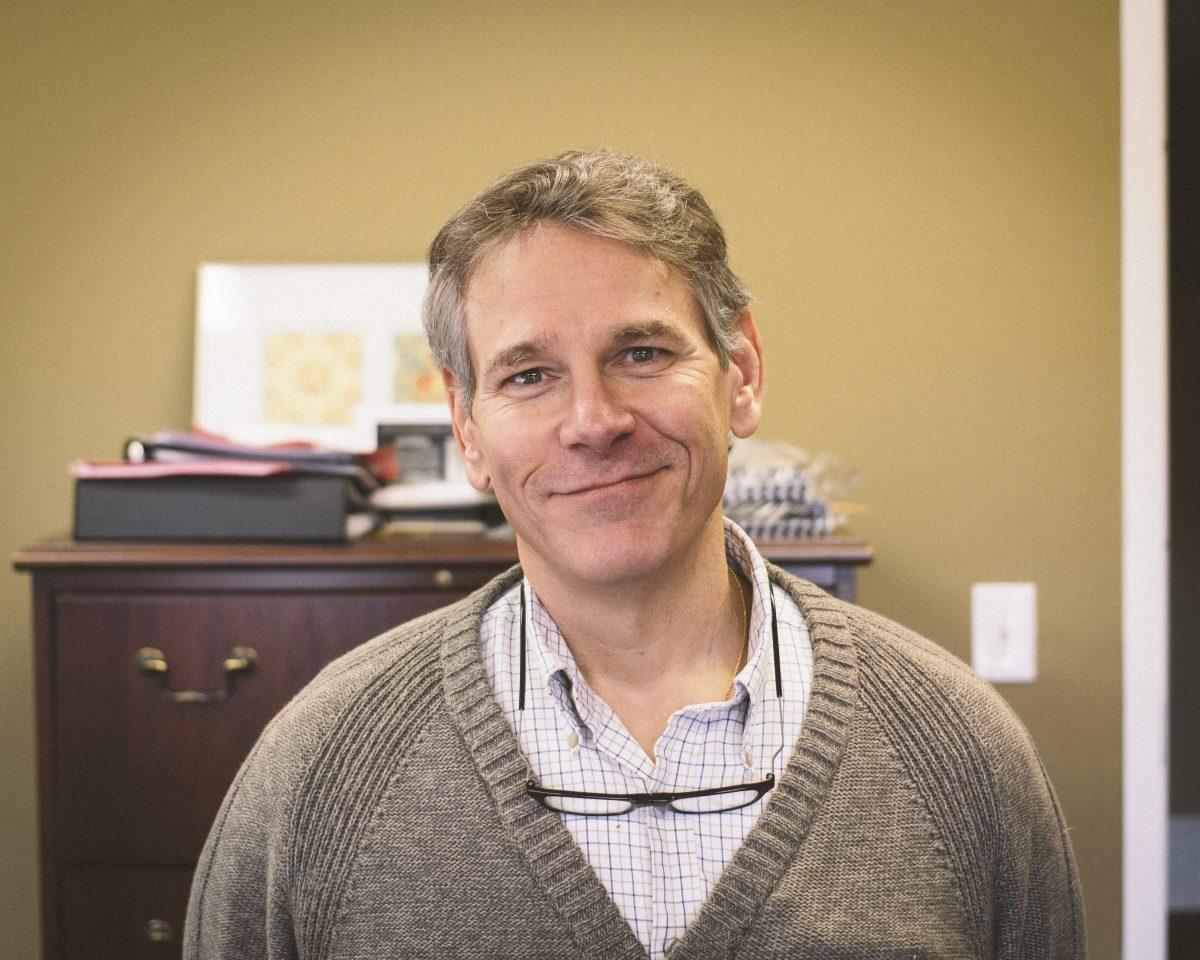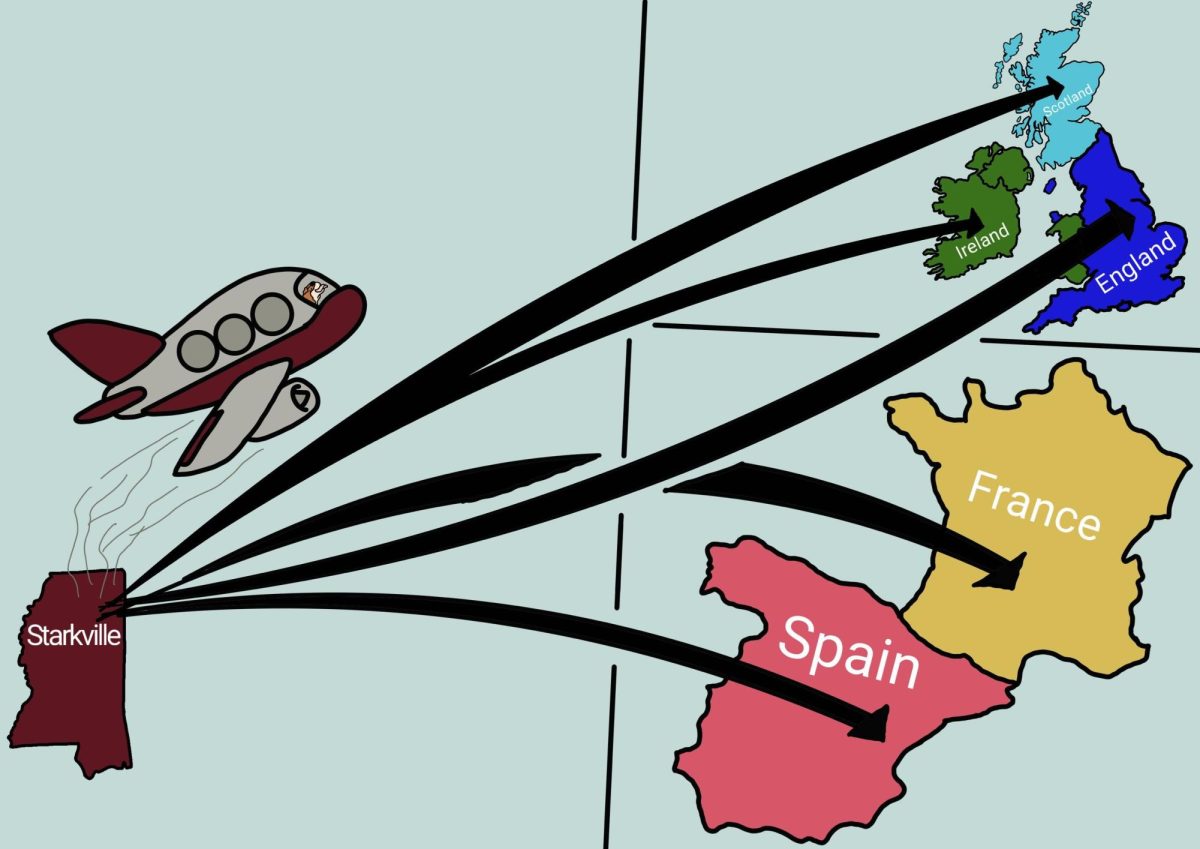In a cold world of data, variables, models and calculated absolutes, Seth Oppenheimer finds beauty in solving mathematical problems as well as in the human experience. Teaching mathematics at Mississippi State University is a way for Oppenheimer to make a living, but he is always sure to remember what makes life worth living.
By today’s standards, man might bestow upon Oppenheimer the title “polymath,” but the humble teacher is quick to recommend the adjective “mediocre” is juxtaposed.
A professor of mathematics and the director of undergraduate research for Shackouls Honor College, Oppenheimer is also a part time seminarian with a congregation at Temple B’nai Israel in Columbus, Mississippi. When he is not fulfilling his duties as a professor, a student rabbi or a father, he enjoys watching an intellectually stimulating movie or reading.
“I read all sorts of things,” Oppenheimer said.
He noted authors Dostoyevsky, Tolstoy and Tolkien. He also enjoys reading history, philosophy and theology (naturally).
If reading is metaphorically akin to inhaling, then writing completes the respiratory process of the human mind, and Oppenheimer writes in a variety of mediums as well. In addition to the academic writing required by his career, he recently had a short story published in a collection of new Jewish folk tales. He is a seasoned poet as well.
Not to be confined strictly to the mental and spiritual realms of discipline, Oppenheimer is also active in the Boardtown Runners and recently finished his 12th marathon. The professor laughed as he recalled the not-so-glamorous scene at the finish.
“It was very slow, and I took a wrong turn somewhere. They were already taking down the finish line when I crossed it,” he said.
Still, finish he did, and Oppenheimer agrees the human individual is composed of body, mind and spirit, and the separation among the parts is an illusion. While he does not claim to be famously adept in any of these realms, he understands the importance to maintain all three.
Having taught a wide range of courses from basic geometry to graduate level applied mathematics, Oppenheimer has taught students who share his passion for mathematics alongside students who are simply fulfilling a requisite course. He said one of the great joys of teaching is inspiring young students who were previously unfamiliar with the subtle joys of mathematics.
“One thing I miss about teaching freshmen is I can’t bring them over to the dark side of mathematics,” Oppenheimer jested. “It’s fun. No matter what else is going on, if you’ve gotten some students to understand something, you’ve had one good thing happen.”
According to Oppenheimer, the value of a basic education in mathematics and statistics reaches far outside the classroom.
“People get lied to so easily by quantitative data and graphs, and understanding some basic quantitative reasoning and statistics helps them be better citizens. We should all be worried about being competent citizens in a free republic. A certain level of basic mathematics and statistics is necessary,” he said. “Beyond that, the deeper you get into mathematics, it helps you understand things in a systematic way. It helps you put together disparate parts in such a way that you see it as a whole problem instead of just separate little things. The deeper you go, the more your understanding of the world improves.”
According to Oppenheimer, trying to convince others of the value of mathematics is natural, but the effort is not always received with enthusiasm. Still, Oppenheimer said what can be even more difficult is convincing fellow mathematicians of the value in subjects such as literature, history or philosophy.
“I think it’s like going to someone who can’t see colors and saying, ‘Look, we can make sure your children have the full spectrum of vision,’ and if they are used to seeing just black and white, they don’t necessarily recognize the power and beauty in that,” he said. “In our lives we are just focusing on going out and getting the food and the shelter. What about what makes it worth staying alive? The music, and the art, and enjoyment and a depth of education?”
Oppenheimer said broader education provides more tools for finding deeper meaning in existence beyond merely surviving.
“In the end we are going to die. At some point in your life, in my life, in all our lives, we are going to suddenly realize death is real. The abyss and meaninglessness is real. And how do you deal with that?” he said. “A good education doesn’t inoculate you against that, but it gives you a sense of how other people dealt with that, and it gives you different tools.”
If there is one thing Oppenheimer thinks students must do above all else in college, it is to learn what their assumptions are.
“In mathematics we make this very clear. We start by identifying our undefined parameters and state what axioms we assume are true for now so we can reason forward,” Oppenheimer explained. “But if we have different understandings of what the undefined parameters are, we can have some common ground, but our different assumptions will ultimately lead to fundamental differences. It doesn’t mean the other person is either evil or a fool. It just means you are working with different axioms.”


























































































